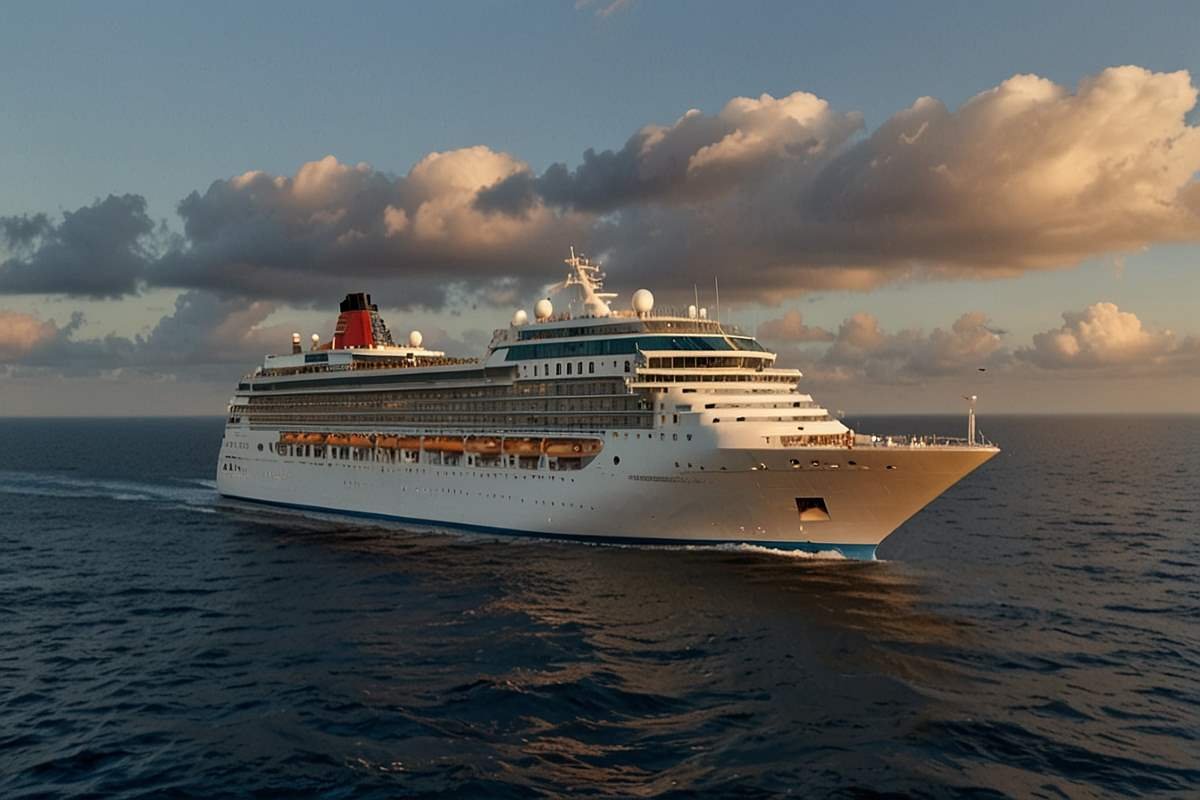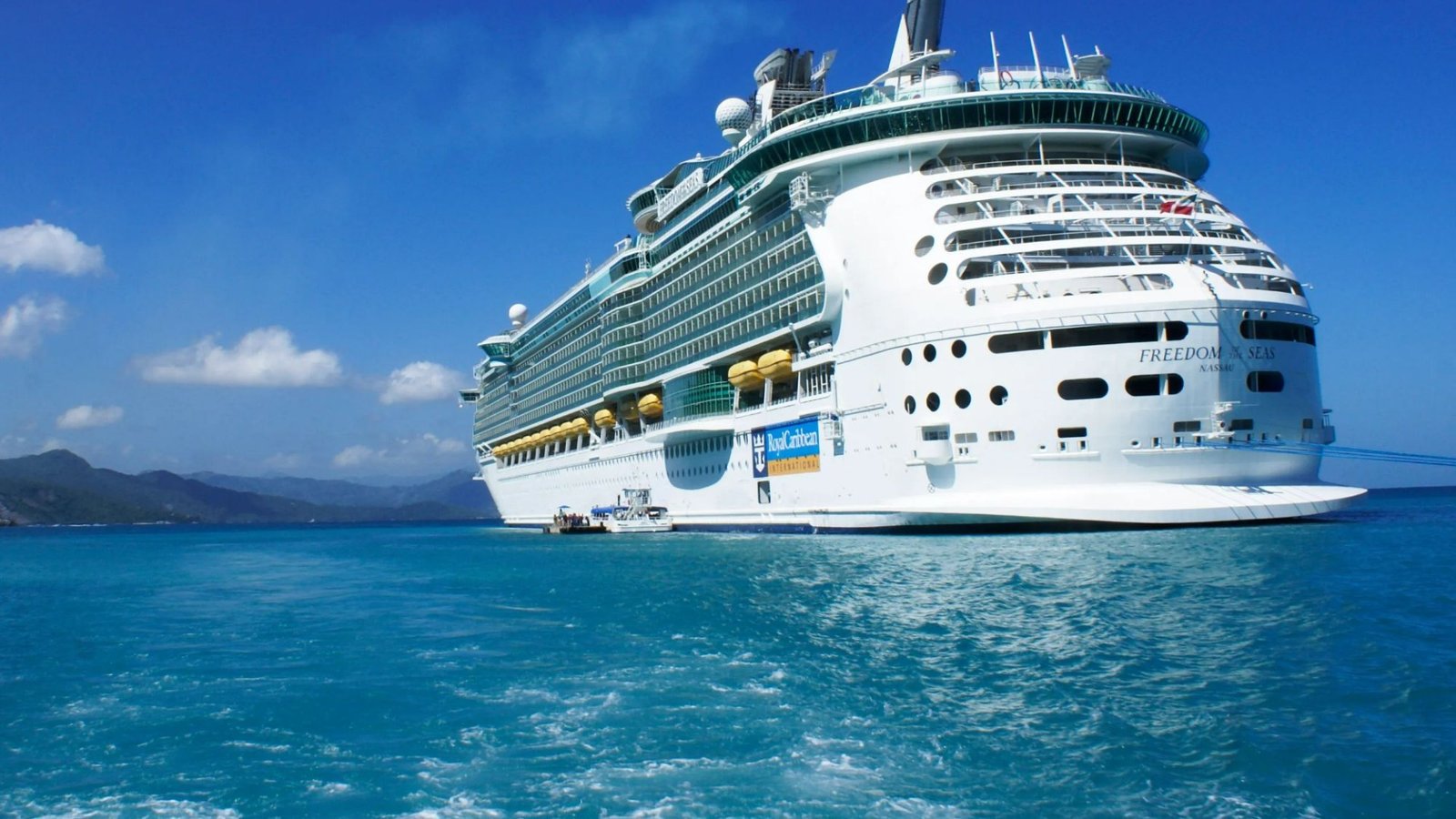Trip Planning
Travel planning 101 – Which resources do Americans rely on when planning their travel itineraries?

Planning a vacation can be tricky. You could be close to booking but stumble upon a damning review online about the hotel or the tour company you so liked bringing you back to shortlisting options all over again.
So how do Americans go about planning their vacations? Which resources do they typically use to plan travel itineraries?
Data from a recent YouGov Surveys: Serviced poll reveals that nearly two in five American adults (38%) rely on word-of-mouth recommendations from friends and family when planning travel itineraries. This resource enjoys a strong seven-point lead over review and rating websites (31%), followed by travel booking platforms (27%).
Data from Profiles, which covers demographic, psychographic, attitudinal and behavioural consumer metrics, reveals that a majority and similar proportions of men and women (70% vs. 71%) have at least one destination in mind or already selected when planning their next vacation.
But men are more likely than women to book vacations (44% vs. 38%) and short breaks (42% vs. 39%) outside of school vacations/breaks.
Nearly two in five men (38%) wait for last minute deals when planning vacations, rather than getting their vacation or breaks sorted in advance. A third of women (33%) say they do the same.
More than a third of men (36%) are averse to package holidays or vacations – more than a quarter of women (28%) agree.
Explore our living data – for free
Discover more travel and tourism content here
Want to run your own research? Run a survey now
Make smarter business decisions with better intelligence. Understand exactly what your audience is thinking by leveraging our panel of 26 million+ members. Speak with us today.
Methodology: YouGov Surveys: Serviced provide quick survey results from nationally representative or targeted audiences in multiple markets. The data is based on surveys of adults aged 18+ years in 17 markets with sample sizes varying between 505 and 2004 for each market. All surveys were conducted online in August 2024. Data from each market uses a nationally representative sample apart from Mexico and India, which use urban representative samples, and Indonesia and Hong Kong, which use online representative samples. Learn more about YouGov Surveys: Serviced.
YouGov Profiles is based on continuously collected data and rolling surveys, rather than from a single limited questionnaire. Profiles data for the US is nationally representative of the online population and weighted by age, gender, education, region, and race. Learn more about Profiles.
Photo by Vlada Karpovich on Pexels
Trip Planning
Aroya Cruises Sees Strong Demand for Eastern Mediterranean Itineraries

Monday, August 4, 2025
Aroya Cruises has launched its first Mediterranean season. The response so far has been extremely enthusiastic. This initial voyage through Turkey, Greece and Egypt is seeing robust reservations and positive communications from guests. This indicates a successful penetration of the Saudi-owned cruise line into European waters.
Official Confirmation of Mediterranean Launch
AROYA Cruises would operate its inaugural Mediterranean itineraries.
The SPA piece outlined key aspects:
- Routes include classic Mediterranean destinations in Greece, Turkey, and Egypt
- The season runs with weekly departures and varied itineraries
Historic Maiden Call Marks New Chapter
The ship’s first European port call. SPA described the occasion as both symbolic and strategic, heralding Saudi Arabia’s first cruise line operating in the Mediterranean region.
During a dedication ceremony, Aroya’s leadership and local Turkish officials exchanged plaques and voiced optimism about growing tourism partnerships between Saudi Arabia and Türkiye.
Itinerary Highlights: Destinations and Timing
SPA and other official sources confirmed the following six- and seven-night routes from June through mid-September 2025:
- Select departures include Rhodes, Turkey’s Aegean ports, and Alexandria, combining scenic coastal stops and cultural hubs.
Ports include Athens, Mykonos, Crete, Bodrum, Marmaris, Kaş, Rhodes, and Alexandria.
Strong Early Demand from Gulf and International Travelers
SPA coverage notes that ticket bookings are robust—drawing guests from Saudi Arabia, Gulf Cooperation Council countries, and international markets. Many passengers are attracted by the blend of Arabian‑style hospitality and Mediterranean destinations.
Officials emphasize that Aroya’s culturally tailored onboard experience—Arabic-language staff, culinary traditions, prayer rooms, and alcohol-free environment—is resonating with its core audience even in European waters.
Aligned with Vision 2030 and Tourism Strategy
The Mediterranean season fits within Saudi Arabia’s Vision 2030, which seeks to diversify tourism and develop cruise infrastructure. Aroya is positioned to help attract 1.3 million cruise passengers annually by 2035, opening up new outbound and inbound tourism corridors.
Cultural diplomacy and regional economic ties—with Türkiye, Greece, and Egypt—are underscored in SPA’s messaging around the Mediterranean launch.
Travel Tips for Passengers
Travelers planning a cruise aboard Aroya in the Mediterranean should consider:
- Visa requirements: Greek ports require Schengen clearance; Egypt requires an Egyptian visa; Turkish ports may allow visa-on-arrival for many nationalities.
- Onboard cultural protocols: Guests should be mindful of dress codes, modest attire, and alcohol-free public areas.
- Booking and amenities: Families are welcome—and Aroya features gender-segregated pools and children’s entertainment areas.
What Made the Mediterranean Season Possible
The Mediterranean launch is enabled by:
- A massive refurbishment of the former World Dream, renamed Aroya, tailored to Saudi cultural norms and international cruise standards.
- Infrastructure and marketing efforts by Cruise Saudi, PIF, and partnerships with Istanbul’s Galataport Cruise Terminal.
Looking Ahead – What Comes Next?
As the summer season progresses through September, official sources from SPA and Cruise Saudi suggest no further Mediterranean expansion has yet been government‑confirmed. However, future itinerary additions to Malta, southern France, or further Egyptian coastlines may emerge as Aroya scales operations.
Final Remarks
Genuinely appreciate Aroya Cruises expanding its Arabian hospitality from Istanbul to the Eastern Mediterranean. The Gulf travelers as well as Europeans show an impressive reception, which speaks volumes to the ship’s appeal and the broader strategy of Cruise Saudi. As Aroya’s sailings continue until mid-September 2025 and with official confirmation from SPA along with Vision 2030, the ship is, without a doubt, writing a new chapter in the tourism tale of Saudi Arabia—one that is heritage grounded and global in its reach.
Trip Planning
Royal Caribbean removes one of its most popular ports from cruise itinerary – booked passengers have no say

ROYAL Caribbean bosses are to remove a popular tourist destination from the company’s travel itineraries.
Officials said the decision was made out of caution.
Royal Caribbean bosses are continuing to pause visits to Labadee – a plush, private resort located off Haiti’s northern coastline.
Trips to Labadee have been paused at intervals over the last year.
Last summer, bosses at the cruise company paused trips to Labadee until September 2024.
In April, chiefs announced visits to the Haitian island would be halted.
And, now this pause has been extended to October, according to USA Today.
The move was made out of “an abundance of caution,” a spokesperson told the outlet.
“We have communicated with guests directly on this change.”
Americans are urged not to travel to Haiti.
The State Department has issued a Level 4 travel advisory.
Level 4 travel advisories are issued because of the life-threatening risks posed to travelers.
Syria, Iraq, Russia, Venezuela, Lebanon, and Somalia are other countries under a Level 4 warning.
Officials have warned how Americans who visit Haiti may be at risk of kidnapping.
Kidnappers on the island are known to target and attack convoys.
Travelers have been warned not to cross the land border between Haiti and the Dominican Republic.
US Department of State Travel Warnings
THE State Department uses a four level system to issue travel advisories.
Here is what each level means.
- Level 1 – Exercise normal precautions – This is the lowest advisory level for safety and security risks. There is some risk in any international travel, and conditions in other countries may differ from those in the United States.
- Level 2 – Exercise increased caution – Be aware of increased risks to safety and security. Specific risks are described in the Travel Advisory.
- Level 3 – Reconsider travel – Reconsider your travel to the destination due to serious risks to safety and security. Specific risks are described in the Travel Advisory.
- Level 4 – Do not travel – This is the highest advisory level due to life-threatening risks. Specific risks are described in the Travel Advisory. The U.S. government may have very limited or no ability to help, including during an emergency. We advise that U.S. citizens do not travel to the country, or to leave as soon as it is safe to do so.
Source: US Department of State
And, the families of kidnapping victims have been forced to pay up to hundreds of thousands of dollars to ensure people have been released.
Americans have been told not to travel to the island due to the threats of crime, terrorist activity, unrest, and limited health care resources.
Officials have also warned about the risks of gang violence outside the main airport in Port-au-Prince.
Haiti has been under a state of emergency since March 2024.
Americans considering traveling to Haiti are encouraged to set up a point of contact before leaving for the island.
And, they should create a will before leaving the US.
Travelers should also leave DNA samples with their medical provider just in case they are needed by family members, according to the State Department.
Drivers should always keep their cars locked, be alert, and never travel alone.
Trip Planning
More Aussies are using AI to plan holidays, from scoring deals to assembling itineraries

I’m planning a trip to Iceland, aka one of the most expensive countries in the world.
Can I afford to go? What would a realistic budget look like for a two-week holiday? How can I cut corners to save some cash?
I decide to do the 2025 equivalent of phoning a friend — I ask my buddy ChatGPT.
My initial prompt is too vague and it gives pricing in USD, which isn’t particularly helpful. I refine my criteria, asking for a rough total in AUD for a fortnight in September, departing from Perth (“please”, I add, because manners are still important when talking to a robot).
In the blink of an eye, Chat spits out a breakdown of average costs on everything from flights to accommodation, car rental, food and activities.
There are three tiers for backpacker, mid-range and luxury travel and an option to split components if I have a travelling companion.
It even offers suggestions for making my hard-earned coin stretch further, like buying groceries rather than eating out and opting to self-drive rather than joining a guided tour of the famous Golden Circle.
All in all, Chat reckons I’ll need to save $8500-$9000 to make Iceland happen.
What would have taken me hours of research and a lot of math just to ascertain whether I can even consider the trip in the first place was reduced to mere minutes.
Cutting corners, cyber style
While I want to give myself a pat on the back for being so resourceful — there’s a certain smugness that comes with finding a sneaky shortcut — I am hardly the first to use ChatGPT for travel tips.
In recent research conducted by Compare the Market, nearly a third of those surveyed admitted to using artificial intelligence to plan their holidays.
These Aussie respondents said they outsourced a range of tasks to AI, with the most common being destination recommendations, hunting for deals, seeking activities and finding accommodation.
Others reported they used AI to quickly create itineraries, scour flights or transport and understand currency conversion.
The data also gave insight into how different generations are embracing the technology — or not.
Perhaps unsurprisingly, gen Z and millennials are spearheading the adoption of AI when it comes to concocting their dream vacation, with 52 per cent and 44 per cent respectively utilising the tool to plan a holiday.
Meanwhile, 93 per cent of baby boomers and 76 per cent of gen X respondents said they were resistant to bringing AI into their trip arrangements.
Compare the Market’s Chris Ford says the stats reflect how we engage with the ever-changing tech landscape.
“Our latest data highlights a shift in the way travellers are approaching their planning, with convenience, personalisation and speed driving the adoption of innovative AI tools,” he says.
“It’s likely that travellers are using these tools in addition to chatting with travel agents, conducting desktop research or seeking ideas and inspiration from social media.
“AI is evolving at a rapid rate and as it becomes more accessible and intuitive, it’s not surprising that travellers are relying on new technology to help shape their dream holidays.”
But the insurer warns against taking AI’s word as gospel.
With nothing to validate the credibility of such recommendations, Ford says travellers need to practice due diligence.
“AI can be a great starting point when planning a holiday, but always ensure you’re crossing your ‘t’s and dotting your ‘i’s,” he says.
“Many of these tools and services are still in their infancy stage and may not be 100 per cent accurate, so do your own research to ensure you’re equipped with the right tools and information for your trip.
“The last thing we want to see is anyone getting themselves into a potentially dangerous or unsafe situation based on the recommendations from AI.”
The virtual line in the sand
Ford makes a crucial point here about our relationship with platforms like ChatGPT.
Rather than approaching them as one-stop-shop to curate every element of our holiday, we should instead consider them as a starting point to kick off deeper research.
After all, isn’t that part of the fun with travel — the anticipation in the lead-up, the process of discovering a destination before we have arrived and assembling a bucket list tailored to our specific taste?
By asking a computer to generate an itinerary based on what’s popular, we are depriving ourselves of creativity, spontaneity and adventure.
We must also remember that what the AI bot spits out is dependent on the quality of our prompts.
The more we refine our request, the more likely we will receive helpful answers, but even then things can go wonky.
Take this from my colleague Belle: “I asked ChatGPT to give me a child-friendly restaurant in Ubud. It sent me to a weird health food restaurant with a koi pond where you couldn’t wear shoes. My feral children cleared the room within minutes. Disaster.”
Then there’s the cognitive dissonance that comes with considering the environmental impact of AI versus the fear of being left behind if we don’t get on board with this technology.
Like it or not, it is shaping and re-shaping the future at breakneck speed.
We all have to decide where our (virtual) line in the sand is: what is productive and “mindful” use based on our needs and values.
For me, I’m OK with employing ChatGPT to whip up a quick budget so I can take the holiday to Iceland I’ve always dreamed of.
But when it asks if I want activity recommendations or a detailed itinerary next, I politely decline. I’d rather leave some room for mystery and exploration.
“Thanks”, I farewell my cyber mate in my sign-off (because, manners).
What the team thinks
Our collective of writers just so happens to represent the four age demographics mentioned in the research above. So what’s the hot take?
Stephen Scourfield — baby boomer
Trusting someone – or, in this case, something – to book a holiday (particularly a family holiday!) requires a lot of trust.
If some detail is missed in the booking process (a wrong date, a badly timed connection), it will be you standing there, somewhere, trying to fix it (possibly with the family “on your case”).
Would I trust AI yet?
No – not yet.
Of course, I think we all know that AI is good at doing grunt work and it is up to us to check details. So AI is already useful for the broad-brush, first sweep of mapping out a holiday.
But AI won’t then back itself by booking it all. (That will be the game changer.)
So, at this stage, AI, for me, is still a basic tool of research – not a replacement for an experienced and knowledgeable travel agent.
Leyanne Baillie — gen X
Although my generation is confident when it comes to using tech (even if we’re not digital natives), I think AI programs would be more effort than they’re worth.
I know it could be a time-saver in terms of journey-planning brainstorming and getting a rough guide of options, but I’d still want to tailor my itinerary to cater to my personal taste.
I don’t think I’m ready to hand over the reins completely to artificial intelligence just yet.
Jessie Stoelwinder — millennial
I love a good travel hack, and that’s how I have been approaching my use of AI.
Anything that makes life a little easier and frees me up to investigate the fun stuff — where to eat, hike, shop, people-watch etc. — and I am on board.
I’ve used ChatGPT to quickly aggregate travel data for personal trips to assist with admin, logistics and practicalities, which I will then cross-check and verify to make sure the information works for me.
Recommendations, however? Word of mouth and insider intel from a human being will always win, in my opinion.
Megan French — gen Z
I would be open to the idea of utilising AI when planning my travels but I’d take everything it recommends with a grain of salt while still doing my own thorough research.
I think it’s great for foundational information-based planning early in trip preparations, such as “what holidays are on in India during July and how is best to navigate them?”
But when it comes to booking flights and accommodation, I’d go nowhere near AI … yet.
-

 Brand Stories2 weeks ago
Brand Stories2 weeks agoBloom Hotels: A Modern Vision of Hospitality Redefining Travel
-

 Brand Stories1 week ago
Brand Stories1 week agoCheQin.ai sets a new standard for hotel booking with its AI capabilities: empowering travellers to bargain, choose the best, and book with clarity.
-

 Destinations & Things To Do2 weeks ago
Destinations & Things To Do2 weeks agoUntouched Destinations: Stunning Hidden Gems You Must Visit
-

 Destinations & Things To Do1 week ago
Destinations & Things To Do1 week agoThis Hidden Beach in India Glows at Night-But Only in One Secret Season
-

 AI in Travel2 weeks ago
AI in Travel2 weeks agoAI Travel Revolution: Must-Have Guide to the Best Experience
-

 Brand Stories1 month ago
Brand Stories1 month agoVoice AI Startup ElevenLabs Plans to Add Hubs Around the World
-

 Brand Stories3 weeks ago
Brand Stories3 weeks agoHow Elon Musk’s rogue Grok chatbot became a cautionary AI tale
-

 Asia Travel Pulse1 month ago
Asia Travel Pulse1 month agoLooking For Adventure In Asia? Here Are 7 Epic Destinations You Need To Experience At Least Once – Zee News
-

 AI in Travel1 month ago
AI in Travel1 month ago‘Will AI take my job?’ A trip to a Beijing fortune-telling bar to see what lies ahead | China
-

 Brand Stories2 weeks ago
Brand Stories2 weeks agoContactless Hospitality: Why Remote Management Technology Is Key to Seamless Guest Experiences
